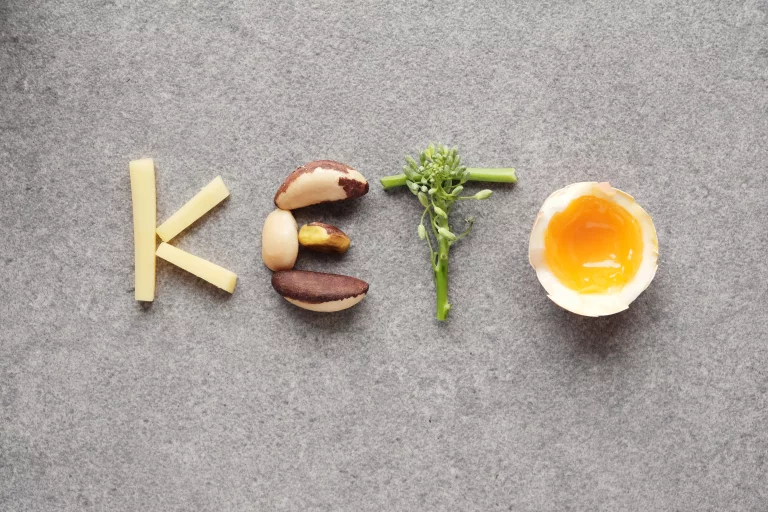How to properly follow the principles of a ketogenic diet and not lose muscle mass?

Consuming fat to burn fat? Though it may sound strange, even counterproductive at first sight, millions of people around the world have indulged in aspects of the so-called ketogenic diet, a diet that consumes more fat at the expense of reducing carbohydrate intake and, of course, with enough protein. Why is that so? Many studies point to the positive effects of keto diet - weight reduction, reduction of oxidative stress, improvement of body composition, reduction of inflammatory processes taking place in the body, increased sensitivity to insulin and many others [1-4]. What to look out for and for whom is this way of eating suitable?
To begin with, it is worth recalling what we have underlined several times in our articles - if a person wants to lose weight, it is necessary that his energy intake is lower than the expenditure. Therefore, if you reduce the intake of some macronutrients (proteins, sugars, fats) in your diet while maintaining the intake of the other two, the weight will automatically go down. Ketogenic eating in this case is nothing but a game with the consumption of macronutrients and calories contained in them. However, the fact that it is so popular among athletes, from Olympic competitors and endurance athletes to enthusiastic amateurs, gives it an excellent reputation even in the eyes of the general public.
A ketogenic diet is a diet in which a person consumes an increased amount of fat at the expense of reducing carbohydrate intake and, of course, with a sufficient amount of protein [5]. The exact ratio of macronutrients is tailored to a particular person, but in general it is a ratio of 75 percent fat, 15-20 percent protein and only 5-10 percent carbohydrates. If you think that a ketogenic diet = a reduction in carbohydrate intake, this is not quite the case, in this case such an equation is incomplete, therefore invalid and lacks several important variables. Above all, it is particularly important to pay attention to the intake of the correct amount of protein - not only insufficient, but also excessive intake can in this case do more harm than good.
Physiologically, the human body is set up so that when it strives to obtain energy, it prefers to draw from the reserves of fast, i.e. slow carbohydrates and fats, while it retains proteins to ensure other processes - the formation of muscle mass, hormones, signalling molecules, cellular metabolism and so on. However, if there is no longer anything to generate energy, proteins are also used for this purpose, in a process called gluconeogenesis. However, with a ketogenic diet, we strive for the body to adapt to using primary fats as a "fuel". Excessive protein consumption can thwart these efforts very quickly. To make matters worse, increased intake protein may increase insulin secretion [6]. And as you know, insulin promotes the use of carbohydrates as a primary energy source by promoting its entry into cells at the expense of slowing down fat metabolism.
In short, consuming large amounts of protein in the current high-fat diet can result in the body not using the intake fat as an energy source, but storing it in the form of body fat in the body [7, 8]. The same mistake is when a person, in addition to increased consumption of fats, consumes also large amounts of carbohydrates. Recall the note on the equation at the beginning of the article. If you want your ketogenic diet to be effective enough, most of the calories have to come from fats - not proteins or carbohydrates [9].
Adaptation in a ketogenic diet takes several weeks before the body recognizes that it should use primarily fats rather than carbohydrates as an energy source. If we look at the level of individual cells, the point is for the body to be able to use ketones - small molecules formed in the liver, containing fatty acids. The body's adaptation to these conditions is very individual, but to some extent it can be influenced. Sufficient intake of electrolytes, especially sodium, potassium or magnesium, is often underestimated. Their insufficient levels in the body can lead to headaches, lethargy or nausea [10].
It is not uncommon for a person on a ketogenic diet to feel weak, tired, or exhausted at the beginning. However, after adaptation, everything returns to normal, even the energy values are higher than with a high-carbohydrate diet. The argument that many vital organs, including the brain, can use only carbohydrates as an energy source, does not stand its ground today - many studies have confirmed this [10, 11]. Furthermore, a ketogenic diet is also used in medicine to treat epilepsy [5, 12]. If you remain sceptical, a ketogenic diet leads to increased fat utilization while maintaining muscle glycogen stores [8], boosting athletic performance [10] and reducing body fat while expanding muscle mass - this effect is improved if a person works out at the same time. [2, 13].
It is essential to consume foods with a adequate amount of quality fat and at the same time with a reduced amount of carbohydrates. Such foods include, for example, nuts, cheese, avocados, pork, eggs. We must not forget about quality nutritional supplements:
MINERALS - to replenish electrolyte reserves
COCONUT OIL - or another MCT oil containing medium chain fatty acids that supports ketogenic metabolism
OMEGA-3 FATTY ACIDS - fight inflammatory processes and reduce the risk of cardiovascular disease
VITAMIN D - important not only for ketogenic diet, but for all active people, especially in winter, when the sun shines during the day for a relatively short time
CREATINE MONOHYDRATE - one of the most comprehensive supplements, supporting muscle growth, strength development and overall endurance
caffeine – so you do not lack energy
BETA ALANINE - an amino acid fighting feeling of fatigue
There are still a number of unanswered questions about the ketogenic diet. For example, what is its effect on high-intensity exercise, strength generation, supplementation, and rehabilitation. However, scientists are not idle, so we can expect to receive proper answers in the near future.
SOURCES
Shimazu T, Hirschey MD, Newman J, et al. Suppression of oxidative stress by ß-hydroxybutyrate, an endogenous histone deacetylase inhibitor. Science. 2013;339:211-214.
Volek JS, Quann EE, Forsythe CE. Low-Carbohydrate Diets Promote a More Favorable Body Composition Than Low-Fat Diets. Strength Cond J. 2010;32(1):42-47.
Forsythe C, Phinney S, Fernandez M, et al. Comparison of low fat and low carbohydrate diets on circulating fatty acid composition and markers of inflammation. Lipids. 2008;43(1):65-77.
Ballard KD, Quann EE, Kupchak BR, et al. Dietary carbohydrate restriction improves insulin sensitivity, blood pressure, microvascular function, and cellular adhesion markers in individuals taking statins. Nutr Res. 2013;33(11):905-912.
Masino SA, Rho JM. Mechanisms of ketogenic diet action. Epilepsia. 2010;51(SUPPL. 5):85.
Boisjoyeux B, Chanez M, Azzout B, Peret J. Comparison between starvation and consumption of a high protein diet: plasma insulin and glucagon and hepatic activities of gluconeogenic enzymes during the first 24 hours. Diabete Metab. 1986;12(1):21-27.
Saltiel AR, Kahn CR. Insulin signalling and the regulation of glucose and lipid metabolism. Nature. 2001;414(6865):799-806.
Phinney SD. Ketogenic diets and physical performance. Nutr Metab (Lond). 2004;1:2.
Westman EC, Feinman RD, Mavropoulos JC, et al. Low-carbohydrate nutrition and metabolism. Am J Clin Nutr. 2007;86(2):276-284.
Phinney SD, Bistrian BR, Evans WJ, Gervino E, Blackburn GL. The human metabolic response to chronic ketosis without caloric restriction: Preservation of submaximal exercise capability with reduced carbohydrate oxidation.Metabolism. 1983;32(8):769-776.
Cahill GF. Fuel metabolism in starvation. Annu Rev Nutr. 2006;26:1-22.
Nehlig A. Brain uptake and metabolism of ketone bodies in animal models. Prostaglandins Leukot Essent Fat Acids. 2004;70:265-275.
Volek JS, Sharman MJ, Love DM, et al. Body composition and hormonal responses to a carbohydrate-restricted diet. Metabolism. 2002;51(7):864-870.



